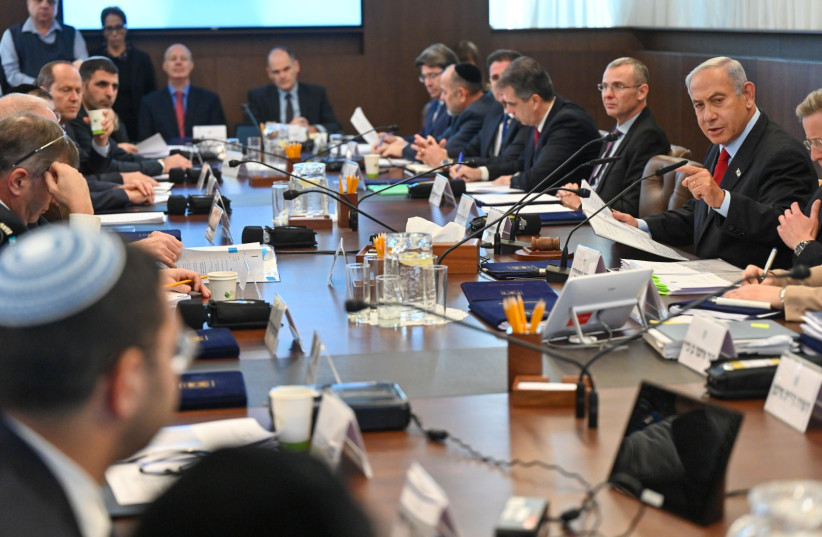The United States and Israel are working toward a united front when it comes to combating the dangers from Iran, Prime Minister Benjamin Netanyahu said at the start of his weekly government meeting on Sunday.
He spoke after US National Security Advisor Jake Sullivan visited Jerusalem and Ramallah on Thursday and in advance of the pending trip of US Secretary Antony Blinken to the region.
A common challenge
“His visit came at a special time, one of serious challenges to our national security and of serious opportunities for peace with our neighbors," Netanyahu said as he alluded to his push to expand Israel's ties with Arab countries in the region.
“Our talks focused on the regional security challenges, especially Iran, as well as ways for cooperation between us against this common threat,” Netanyahu said.
“I was impressed that there is a genuine and mutual desire to reach understandings on this issue, which is of decisive importance to the security of the state," Netanyahu explained.

"The discussions on the issue will be held between Jerusalem and Washington in the coming weeks,” Netanyahu said.
Iran had in the past been a source of tension between Jerusalem and Washington in light of US support for the 2015 Iran nuclear deal, which is now dormant, thereby allowing for a new joint understanding.
Iranian execution of street protestors has also helped galvanize global opinion against the Islamic regime, particularly around the issue of sanctions which Israeli has always argued is an effective tool.
European Union foreign ministers are expected to agree further sanctions targeting members of Iran's Revolutionary Guard Corps at their meeting in Brussels on Monday, a spokesperson for the German Foreign Office said on Friday.
Some EU member states want to go further and classify the Guards as a whole as a terrorist organization.
Asked at a regular government news conference in Berlin whether sanctions could hamper diplomatic efforts to prevent Tehran from developing nuclear weapons, the spokesperson said: "The focus of our policy currently is increasing pressure on the Iranian regime.”
Iran's troubled currency fell to a record low against the U.S. dollar on Saturday.
The dollar was selling for as much as 447,000 rials on Iran's unofficial market on Saturday, compared with 430,500 the previous day, according to the foreign exchange site Bonbast.com.
The rial has lost 29% of its value since nationwide protests following the death in police custody of a 22-year-old Kurdish Iranian woman, Mahsa Amini, on Sept. 16.
The unrest has posed one of the biggest challenges to the theocratic rule in Iran since the 1979 Islamic Revolution.
The economic Ecoiran website blamed the continued fall of the rial on an apparent "global consensus" against Iran.
"Increasing political pressures, such as placing the Revolutionary Guards on a list of terrorist organizations, and imposing restrictions on Iran-linked ships and oil tankers... are factors pointing to a global consensus against Iran, (which may affect) the dollar's rate in Tehran," Ecoiran said.
The European Parliament called on Wednesday for the EU to list Iran's Guards as a terrorist group, blaming the powerful force for the repression of protesters and the supply of drones to Russia. The assembly cannot compel the EU to add the force to its list, but the text was a clear political message to Tehran.
Reuters contributed to this report
